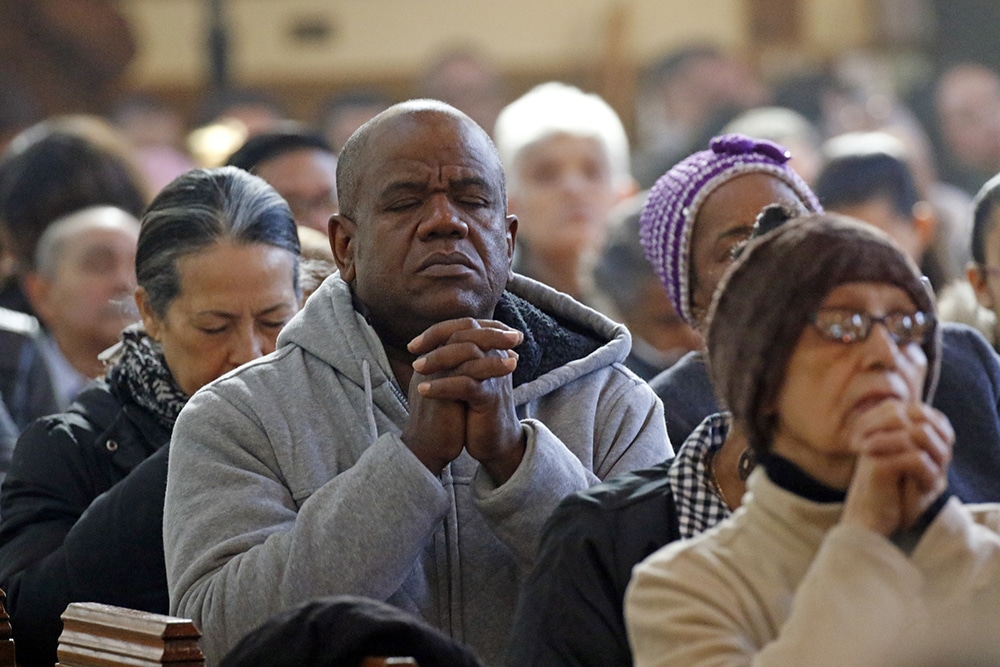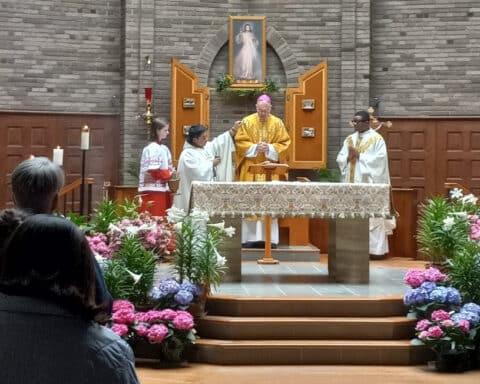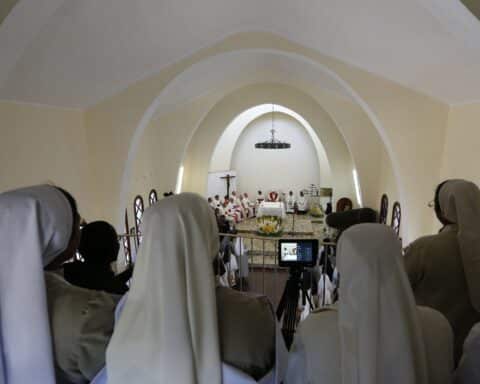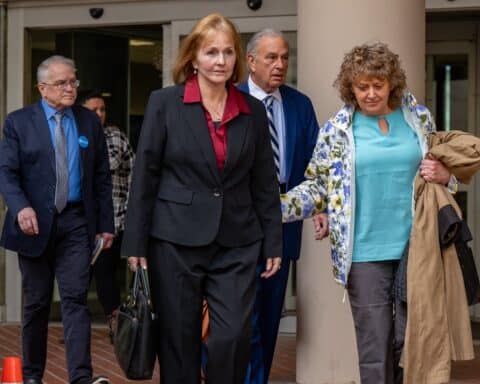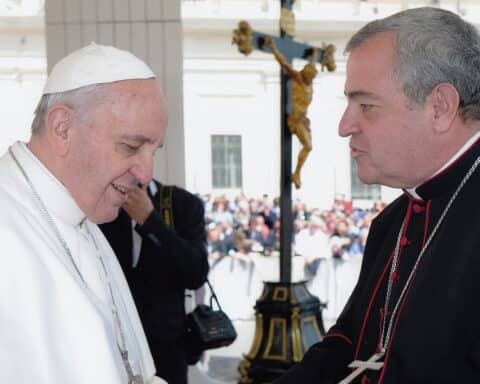Editor’s note: Thank you for your interest in “The Church in Crisis: A Way Forward for Catholic Laity.” Due to concerns about the spread of the novel coronavirus, the decision has been made to cancel this event. Refunds for those already registered will be given in full. Please email Kathy Skelly at kskelly@osv.com with any questions.
For nearly 20 years now, the Catholic bishops, priests, consecrated religious and laity in the United States have labored under a demoralizing cloud of clerical sex abuse, cover-ups and corruption at the highest levels of ecclesial authority.
But despite frequent news reports of freshly uncovered allegations, lawsuits, depositions and financial settlements related to clergy sex abuse, many Catholics had hoped that even as the Church continued to deal with the fallout that they at least wouldn’t need to relive the shock and trauma of 2002, when the Boston Globe Spotlight Team broke the scandal out into the open.
But that changed in the summer of 2018. That August, a Pennsylvania grand jury uncovered evidence that prosecutors said revealed that hundreds of diocesan priests in that state had sexually abused at least 1,000 children over a 70-year period, and that the bishops covered up those crimes.
The Pennsylvania grand jury report’s shocking details angered many, and prompted more than a dozen attorneys general in other states to launch their own investigations into decades of clerical sex abuse. The report also changed the political landscape and emboldened state lawmakers in New York, New Jersey, California and elsewhere to amend their statutes of limitations to allow victims to file civil lawsuits in decadesold sex abuse cases.
In the summer of 2018, the public also learned that Theodore McCarrick, the once influential cardinal-archbishop of Washington, D.C., had been credibly accused of molesting minors and sexually harassing priests and seminarians for decades. The faithful discovered that that alleged pattern was known among Church officials even as McCarrick climbed the eccesial ladder and became a cardinal in 2001.
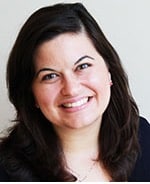
“What the McCarrick revelations showed us is that there is a whole other level out there of abuse and cover-up that needs to be dealt with,” said Gretchen Crowe, the editorial director for periodicals at OSV.
Last year, McCarrick, 89, was removed from the clerical state after a Vatican tribunal convicted him of sexual abuse and other canonical crimes. The Holy See will soon release an anticipated report on his career that is expected to show how McCarrick, a prolific fundraiser with Vatican connections, became a powerful figure in the Church.
“Once that report is released, I fear this is going to be thrown back into the headlines in a way that is going to be very painful for the Church,” said Crowe, who added that the clergy sex abuse crisis “is not going anywhere” anytime soon.
| Mission Statement |
|---|
|
“The Church in Crisis: A Way Forward for Catholic Laity” is an initiative of OSV that seeks to promote education, formation and healing in the wake of the clergy sexual abuse. Despite the great damage done to victims/survivors, the Church and the world, the crisis has opened a door for Catholic laity to respond and to help bring about a new beginning. As our bishops chart a path forward on the national and international levels, Catholic laity have the opportunity and responsibility to assist them by working to renew and bring hope to a broken Church. This symposium will help that process to begin.
|
Empowering the laity
It was during the fall of 2018, when the McCarrick revelations were fresh and still being unearthed, that the idea for a conference to examine the abuse crisis began to take shape at OSV.
“We wanted to find a way to empower the laity, to help them understand their vocation better, and their rights and responsibilities, and the opportunity they have to help renew and bring about hope to the Church, which is broken,” Crowe said.
From March 12-14, OSV’s publishing division will host “The Church in Crisis: A Way Forward for Catholic Laity” in Arlington, Virginia. The three-day conference will explore the roots of the abuse crisis, examine its causes and discuss possible solutions for healing and restoring trust in the Church.
The conference also will aim to inspire the laity with a better understanding of their rights and obligations to help the Church grow and evangelize.
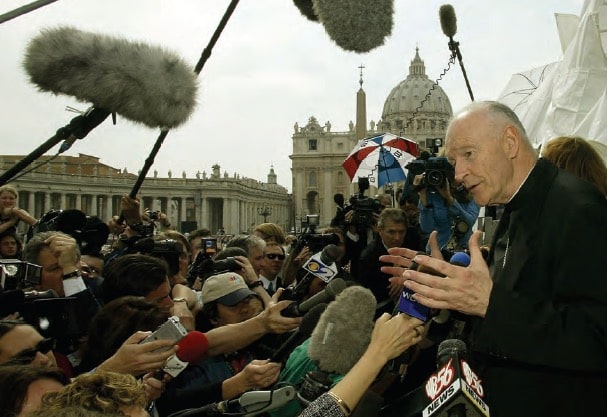
“I think the laity sometimes can find themselves in the position where they say the bishops are our leaders, they’ll take care of the crisis, and our role is to sit back and wait, pray and hope that everything goes well,” Crowe said. “When, in reality, the laity are, by right of baptism, called to be in the very midst of helping the Church through a crisis such as this with our own gifts, with our own talents, using our own time and resources, working with Church leadership to help bring about healing to the Church.”
As Pope Francis and the American bishops chart a path of reform and healing on the national and global levels, the laity, no matter where they are, can help and work with Church leaders to bring renewal and hope to a broken and suffering Church. The symposium is intended to help begin that process.
“As the conference unfolds, there will be sessions on how the laity can help revitalize the parish, how the laity and the clergy can work together to help bring about healing, how the laity can more effectively communicate the Faith during this time of crisis, and how the laity can be involved in the governance of the Church, which can be kind of a sticky issue,” Crowe said.
“The conference is going to cover all this, and also look to those men and women who have gone before us during times of crisis,” Crowe added. “Our Church is rich in history — good and bad. During some of those other times within the Church, we have seen men and women rise to the fore and become saints for the work that they have done in helping the Church to find its way forward.”
The conference will feature keynote talks, panel discussions and breakout sessions featuring familiar names in the Catholic world, such as Edward Sri, Kathryn Jean Lopez, Elizabeth Scalia, Father John Beal, Hosffman Ospino and Christopher Ruddy, among several others who represent a wide cross-section of professional and personal backgrounds.
“We didn’t want this to be a purely academic conference,” Crowe said. “So we knew we needed to have well-formed and well-educated speakers who would be able to talk about these issues in a very relatable way.”
Addressing difficult issues
Following welcoming remarks and opening prayer on March 12, Ruddy, an associate professor of historical and systematic theology at The Catholic University of America, will deliver the conference’s first keynote talk, titled “Why Are We Here? A Survey of the Church in Crisis from 2002-2020.”
“I think the biggest change that distinguishes now from 2002 is the whole thing surrounding McCarrick. That really blew a lot of things open,” Ruddy said. “The actual events were sort of mind-blowing and soul-crushing at the same time. But for me at least, I think part of what made it so challenging was seeing just how broad and deep the rot that is in the Church.
“We’re not in some ways just dealing with an isolated bad apple,” Ruddy added. “This is revealing so many other things — the duplicity, the lying, the lack of truthfulness and the kind of corruption that made McCarrick possible and that he deepened as well.”
Following his talk, Ruddy will participate in a panel discussion that Crowe will moderate and that will include Robert Royal, founder and president of the Faith & Reason Institute, and Teresa Pitt Green, a clergy sex abuse survivor who co-founded Spirit Fire, a Christian restorative justice apostolate.
“I was surprised and blown away, both by the commitment that I saw in talking with Gretchen Crowe and others at Our Sunday Visitor,” Ruddy said. “They really want this to be honest and constructive, not cliche-ridden where we are dancing around difficult issues. I think they really want this conference to be honest and forthright, and for me, that’s the key thing. A lot of this comes down to the fact that we’re not speaking honestly as a Church. We’re not being forthright and upfront. We need that kind of honest, respectful and loving kind of talk.”
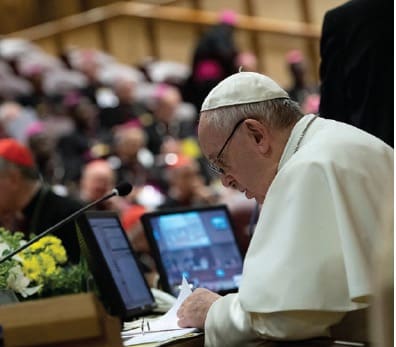
A reception and dinner will follow the panel discussion. Afterward, Ospino, an associate professor of Hispanic Ministry and Religious Education at Boston College, will deliver the second keynote talk, titled “Clericalism: What Is It? And How Can the Church Navigate It?”
After Ospino’s keynote, Michael Heinlein, editor of OSV’s Simply Catholic website, will moderate a panel that will include Ospino, Kathryn Jean Lopez, editor-at-large of National Review Online, and Father Thomas Berg, vice rector and professor of moral theology at St. Joseph’s Seminary in Yonkers, New York.
“I tend to say that clericalism is kind of like pornography, in the sense that it’s not easy to define but you know when you experience it,” said Father Berg, who expects to point out during the panel discussion that priests who are “infected by clericalism” fail to exercise genuine spiritual fatherhood. Father Berg said he will make the case that spiritual fatherhood is deeply connected to a healthy and true understanding of celibacy.
“While I disagree that clericalism is a major factor in the sexual abuse crisis, it certainly is in the mix, in that a sense of entitlement can lead a cleric to abuse the power differential between himself and the persons he’s called to minister to, and that opens the door to abuse,” Father Berg said.
The role of the laity
Edward Sri, a theologian, author and vice president of formation for the Fellowship of Catholic University Students, will deliver the opening keynote speech on the conference’s second day. He will be speaking on “Understanding the Theology of the Laity.”
Sri told Our Sunday Visitor that he will say that the laity’s vocation is not to be overly deferential or passive when dealing with the Church hierarchy. However, the laity also shouldn’t be agitating for revolution or trying to overthrow the clergy, either.
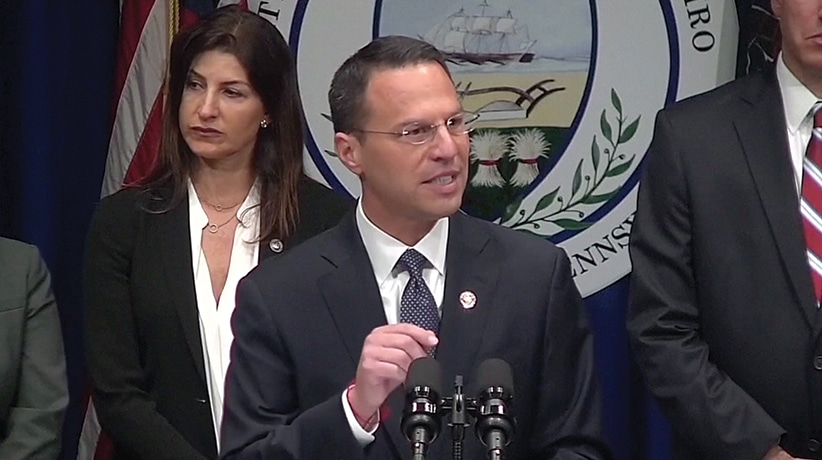
“There is a middle ground that honors the office of our pastors and Church leaders while speaking the truth, asking questions, offering guidance and encouragement,” said Sri, who added that the laity is called to do more than push for management policies.
“Yes, we need to do that, but it is really holiness that we need to be talking about,” Sri said. “People may think that’s trite, but it’s holiness that defeats the devil. It’s not so much getting the right policy or getting the right manager in the right situation to solve an HR issue. You can have the best policy in the world, but you’re still going to have sin in the Church.”
Sri said he will also emphasize that the laity should demand holiness from their priests and bishops, and that the clergy should be faithful in proclaiming the Gospel and the truths of the Catholic faith. He added that it is important to remember that the Church “has been through times like this before.”
“And it’s going to go through times like this again,” Sri added. “But there is a supernatural perspective that we as the laity need to have on the Church, not just a human perspective.”
Following his keynote speech, Sri will participate in a panel that will be moderated by OSV’s publisher, Scott P. Richert, and will include Kim Daniels, associate director of the Initiative on Catholic Social Thought and Public Life at Georgetown University, and Ruddy of The Catholic University of America.
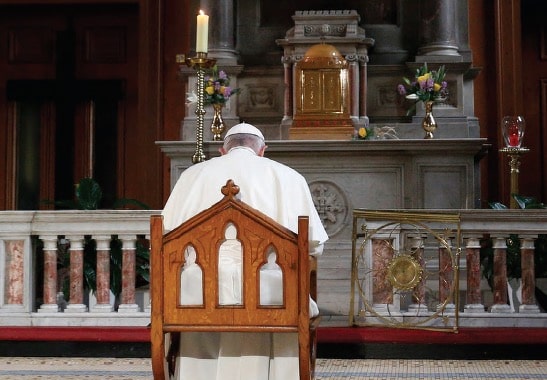
“A central teaching of Lumen Gentium [the Second Vatican Council’s Dogmatic Constitution on the Church] was obviously the universal call to holiness, and the way that gets lived out in the lay state,” said Ruddy, who expects to emphasize during the panel discussion that the laity is called to work with the hierarchy for the good of the Church.
“Something really needs to be done,” Ruddy said, “The job of the laity is not so much to sit around and wait to be told what to do, as it is to work together with their priests, their pastors and bishops to take initiative and to really get involved in the mission that Christ gave directly to the laity.”
The conference’s second day will also feature breakout sessions that among other topics will address how the the sex abuse crisis has influenced popular perceptions of the Church as well as the complicated and controversial matter of how homosexuality is tied in with the crisis. Topics will also include a survivor’s perspective of the crisis, the challenge of communicating the Catholic faith in the midst of the crisis, and how the laity can revitalize their parishes and exercise their priesthood together with the clergy.
Following Mass at the Cathedral of St. Thomas More in Arlington, conference attendees will enjoy a reception and dinner before hearing the second day’s final keynote talk, titled “Church Governance and the Role of the Laity,” by Father John P. Beal, a canon law professor at The Catholic University of America.
Elizabeth Scalia, the editor-at-large for Word on Fire Catholic Ministries and the Word on Fire Institute, will participate in the panel discussion that will follow Father Beal’s talk. The panel, which Heinlein will moderate, will also include Father Beal and John Carr, director of the Initiative on Catholic Social Thought and Public Life at Georgetown University.
The beginning of healing
Regarding lay participation in Church governance, Scalia said involving laity in the formation of priests could “really change the dynamic” in how clergy and laypeople relate to each other. She may also raise the possibility of including lay men and women in the College of Cardinals, which may sound radical but is not a theological impossibility.
“I think the presence of some truly holy and humble people, men and women, among Church administrators who are accustomed to one way of thinking and one way of doing things, I think that can only help the Church,” said Scalia, who on the conference’s third day will deliver the second-to-last keynote speech, titled “A Bride Wounded Yet Lovable: Restoring the Church Through Our Baptismal Priesthoods and Our Saints.
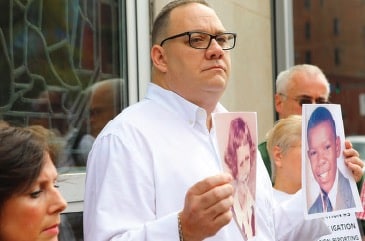
“What I’m really going to try to do, as best as I can, is to articulate the feelings of the laity in regards to our perception of what the bishops are doing or have not done to credibly address things,” Scalia said. “Then I’m going to really talk about what our baptism requires of us in terms of the priesthood of the laity, how the saints understood that and how the saints had some very common messages and very common ways of addressing the world that were rooted in realities which weren’t always comfortable.”
Scalia added that she will put on her “mother’s hat” and give a talk that is encouraging and heartening, but also firm and frank in pointing out some things the Church is collectively doing that is not helping abuse victims to heal or to keep people from emptying out of the pews.
“Just in how we treat each other and how we live our lives, we do enough to cause ‘scandal’ within the Church,” said Scalia, who after her talk will join Steve Weidenkopf, a lecturer of Church history at Christendom’s College Graduate School of Theology, for a panel discussion that will be moderated by York Young, senior managing editor at OSV.
Franciscan Father Agustino Torres, founder of Corazon Puro, will deliver the conference’s final keynote talk on the “Universal Call to Holiness.” Before the closing prayer and dismissal, members of the event’s organizing committee will offer their final thoughts in a half-hour segment called, “Where Do We Go from Here?”
“I hope as people depart the conference that they will feel uplifted, inspired, encouraged and resolved to help the Church move forward and find healing,” said Crowe, who added that the conference will not be a one-time event.
“We’re going to follow up on this event in our publications at Our Sunday Visitor and with other possible events,” Crowe said. “It’s not like this is a conference that you come to and solve all the Church’s problems and then we all go home. This will be the start of an important conversation that needs to take place.”
Brian Fraga is a contributing editor for Our Sunday Visitor.
| Speaker Schedule |
|---|
 Thursday, March 12 Thursday, March 12• Keynote: Why Are We Here? A Survey of the Church in Crisis from 2002-2020 — Dr. Christopher Ruddy
• Keynote: Clericalism: What Is It, and How Can the Church Navigate It? — Dr. Hosffman Ospino
Friday, March 13
• Keynote: Understanding the Theology of the Laity — Dr. Edward Sri
• Keynote: Church Governance and the Role of the Laity — Rev. John Beal
• Breakout sessions:
• The Crisis and Homosexuality — Rev. Paul Sullins
• The Crisis: A Survivor’s Perspective — Teresa Pitt Green
• The Crisis and Perceptions of the Church — Kathryn Jean Lopez
• How the Laity Can Help Revitalize the Parish — Tim Glemkowski
• Laity and Clergy: Exercising Christ’s Priesthood Together — Michael R. Heinlein
• How to Effectively Communicate the Faith in the Midst of Crisis — Teresa Tomeo
• Mass at the Cathedral of St. Thomas More — Principal Celebrant: Most Rev. Michael F. Burbidge, bishop of the Diocese of Arlington, Virginia
Saturday, March 14
• Keynote: A Bride Wounded Yet Lovable: Restoring the Church Through Our Baptismal Priesthoods and Our Saints — Elizabeth Scalia
• Keynote: The Universal Call to Holiness — Father Agustino Torres
Follow the conference on our social media and by using #churchincrisis.
|

